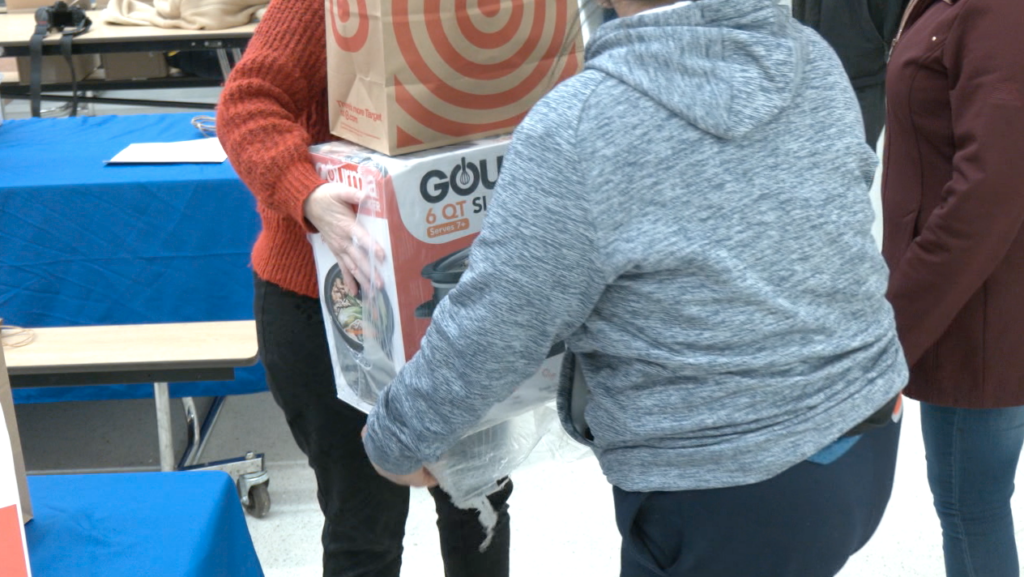Think twice about health before trying marijuana, say local health officials
MARYLAND – Marylanders are preparing for legal, adult-use recreational marijuana to be legalized on July 1st. Ahead of that, local health officials are warning people to think twice about their health before using cannabis.
Short-Term Health Effects
Wicomico County Health Department Officer Matthew McConaughey says there are both short- and long-term effects associated with marijuana use. “We have receptors in our brains that get triggered off of naturally occurring chemicals. THC overstimulates these receptors, and that can lead to a host of things,” he said.
Short-term effects can include feeling high, mood changes, and difficulty with making sense of your surroundings and passing time. McConaughey says difficulties with thinking and problem solving are also included.
And, “With higher concentrations, and higher potencies, you can have hallucinations, paranoia, and some psychosis,” says McConaughey.
Long-Term Health Effects
McConaughey lists long-term effects as problems with breathing, increased heart rate for older adults, and developmental complications for fetuses and newborns.
“If you’re pregnant, please choose not to engage with marijuana use,” said McConaughey. “Your infant can be reported as being exposed to a substance, and that’s a whole additional process that needs to be looked through and investigated.”
Teens and adolescents should also not use marijuana, says McConaughey. “They will begin to not fully develop their brain because of the impairment. The overreaction and overactivity in those brain receptors doesn’t allow for the proper matting that we would like to see done,” he said.
In the meantime, McConaughey says, “We’re starting to be able to do more studies and tests. But, since the federal government still hasn’t legalized it, there isn’t a lot of money to do longitudinal tests, to find out what long-term health effects are going to occur.”
Gateway Drugs, Marijuana Use Disorder
McConaughey says marijuana is among the three gateway drugs; alcohol, tobacco, and cannabis are typically the primary three drugs that people engage with before using other, more powerful substances.
“You can become an alcoholic, you can become addicted to nicotine, and the same is true with marijuana. You can develop a marijuana use disorder. And, when you create an addiction or a dependency, it changes how your brain is formatted, structured, and reacts to chemical receptors,” said McConaughey. “It really plays back, not just to the biomechanics, but also your social situations, how you’re grown up and raised, and what’s in that environment.”
The notion that you cannot become dependent on marijuana, is a myth, says McConaughey; adding, people who use marijuana before the age of 18 are seven times more likely to develop a marijuana use disorder.
“It’s causing your brain to restructure pathways, and a use disorder can be established,” said McConaughey. “The studies are a little vague, but they’re getting better. Right now, it’s estimated that between 9% and 30% of long-term marijuana users will develop some use dependency.”
There is currently no medication available to treat marijuana use disorder. However, McConaughey says the Health Department has resources you can turn to. Those include cessation courses, and behavioral health options.
Play It Safe
And, if you do choose to try marijuana, McConaughey urges you to know what you’re ingesting.
“It’s not the marijuana of 20 or 30 years ago… So, we just have to be very conscious,” said McConaughey. “And if people are using a vape or a dab, they’re consuming that high concentration in just that one go. When you’re exposing yourself to higher potency or higher levels, you have a greater risk of developing a use disorder.”
If you have children, McConaughey says you should keep any marijuana products out of their reach, and in a child-proof container. “We do not want children to be able to get into them because that dosage might be right for a 240 pound male. But, if my two-year-old decided to get into something, he would have some severe health issues,” he said.
Last, but certainly not least, “Don’t operate a machine [or vehicle],” said McConaughey. “Do not do anything under the influence, because you still have the same impairment. It may be different than alcohol. But, you’re still facing an impairment in decision making. It’s an inhibitor, and there are going to be liabilities and risks associated with that.”


